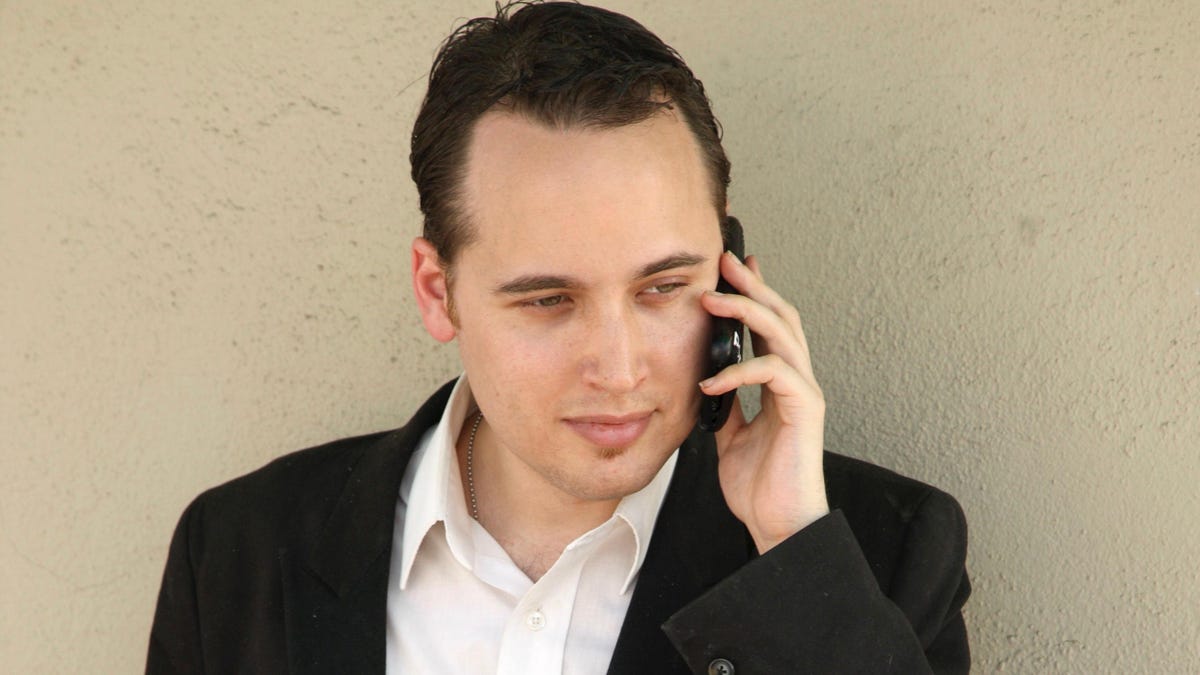 I first met Adrian Lamo back in 2002. I was teaching a high school networking class and I thought it would be cool to have the kids experience a “real” hacker, since so many of them aspired to learn how to get into the computerized grading system that the school ran. It wasn’t a very exciting teachable moment, as I recall. But Lamo made a big impact on me, as he couch-surfed in my New York suburban apartment.
I first met Adrian Lamo back in 2002. I was teaching a high school networking class and I thought it would be cool to have the kids experience a “real” hacker, since so many of them aspired to learn how to get into the computerized grading system that the school ran. It wasn’t a very exciting teachable moment, as I recall. But Lamo made a big impact on me, as he couch-surfed in my New York suburban apartment.
Sadly, I learned that last week he died at age 37 in Wichita, KS. The cause of death hasn’t yet been determined, and he had been living in the area for the past year, according to reports. Lamo moves around alot, thanks to a rather interesting personality that could best be described as on the autism spectrum. When I met him, he had the symptoms of obsessive-compulsive disorder and was later diagnosed with Aspberger’s. One of his quirks was that it would take him a while to leave my apartment every morning: he had a sequence of steps to follow in a very specific order before he could walk out the door.
Lamo was a study in contradictions: both very bright and very socially awkward, a Sheldon Cooper before his time. He had a high sense of morality. At the time Lamo stayed with me, he had been arrested for breaking into several different computer systems, including that of the freelancer database of the New York Times. His method was to find an open Web proxy server and use that to gain entry inside a corporate network. (It is still a common entry point method, although many companies have finally figured out how to protect themselves.) He never profited financially from these attacks, instead he would often leave hints on how a company could close these proxies and improve their security. He was sentenced to house arrest for the Times attack.
At the time we met, he was called the “homeless hacker” – not because he was living on the streets, but because he was young and had no fixed address, and would go from couch to couch as the mood took him. I offered him a place to stay and a chance to get to know him better, thinking how cool could that be? Little did I know.
When I told my then-teenage daughter about his impending visit, she was rather incredulous (you have someone wanted by the police staying with us) but ultimately she was won over by his geek cred – she had a problem with her cell phone that she recalls him fixing in a matter of seconds.
Well, Lamo went on get a degree in journalism, ironically enough. He was very connected to the tech trade press, and Brian Krebs recalls his various interactions with him in this post.
Lamo is remembered in various tributes in the past few days with his role in the Wikileaks/Cablegate case of 2010, when he divulged the name of Private Manning to the feds as the leaker. Both then and now, his decision was vilified in the hacking community, with numerous online threats.
I had a chance to speak to Lamo back in 2011 and recorded the interview for ReadWrite, where I was working at the time. It covers a lot of ground:
He has some very wise comments about the importance of government secrecy, and the freedoms that it enables for us all. Lamo saw the Manning case from the other side, as a case that would be eventually remembered supporting our freedoms. It was a real issue for him, because as a hacker he could certainly understand what Manning was trying to do, but as someone who also understood the role of our military he couldn’t in good conscience allow her to leak all that data. When Manning contacted Lamo he had a crisis of conscience and made his decision. He struggled over harming Manning, whom he considered a friend, or harming countless others who would be placed at risk because of Manning’s leaks. He wishes Manning had come to him before making the documents public.
This is certainly an interesting position for a hacker to take, to be sure. He was vilified in the hacker community because of it, but I think he made the right decision. “Who would have thought that when we first met ten years ago that I would have been involved in the single biggest intelligence leak in history,” he told me. How true.
He continued to work as a security consultant, helping corporations understand better security practices as well as going out on the speaking circuit. Ironically, his preferred method of communications more recently was FedEx! “I’m a little bit of a Luddite these days,” he said.
Lamo left this planet far too soon. He was a very smart guy and had a very solid moral compass, and those two traits guided his actions all his short life. I am sad that he is no longer with us, and hope that his life can be noted and celebrated for his accomplishments, verve and significance.
Fascicnating story about Adrian Lamo. Thanks!
Lamo is once again in the news, for his legacy Twitter account @6 being the source of a huge internal social engineering hack on the company’s administrative tools.
https://medium.com/@lucky225/the-twitter-hack-what-exactly-happened-d8740d33c1c
Pingback: Discovering New Ways To Phish – Mass Blog